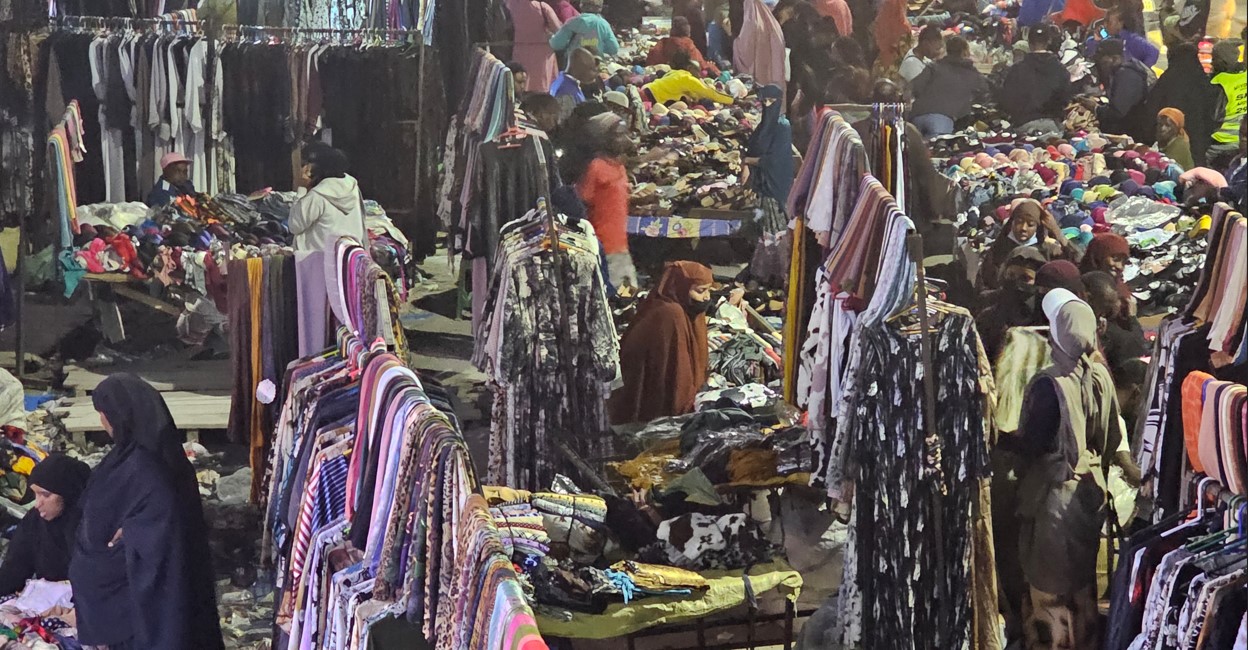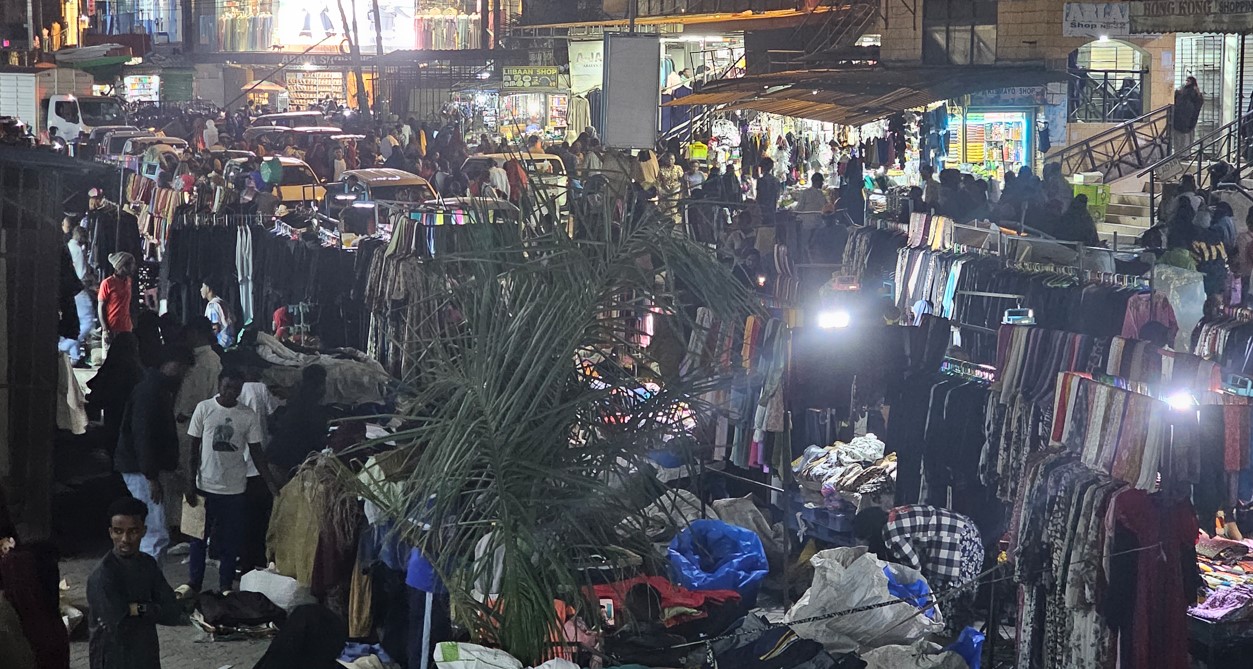Night market thrives on Eastleigh’s Kipanga Athumani Street as major malls close for the day

The resilience of the hawkers and their ability to adapt to the conditions keeps the market alive, providing affordable goods.
As night falls, Kipanga Athumani Street in Eastleigh transforms into a bustling marketplace.
What is mostly a dusty road during the day becomes an epicentre of commerce, with hundreds of hawkers setting up shop.
More To Read
- Eastleigh bustles with Christmas shoppers as holiday season kicks off early
- Tatu City hosts Muslim business community to explore new investment opportunities
- How community initiative is reviving Eastleigh’s cricket legacy
- Eastleigh MCA blames county officials for destruction of newly built Captain Mungai Street
- Youth football comes alive in Eastleigh as Fazam Academy clinches Moi Cup title
- Eastleigh’s 24-hour economy key to Kenya’s commerce, says CS Lee Kinyanjui
Each evening, the street fills with vendors offering a wide range of goods, from clothes and shoes to jewellery, cosmetics, and street food.
For many residents, the night market serves as the only option for shopping after a long day of work. With most malls closed by 6 pm, the hawkers' stalls become the preferred destination for those looking for affordable products.
The competitive prices attract crowds of buyers, making the street nearly impassable for both pedestrians and motorists. Every available space is taken up by hawkers, turning the road into a vibrant market.
Mothers are often seen managing their stalls alongside their children, who sometimes assist in running the businesses.
 With no street lighting, vendors on Kipanga Athumani Street in Eastleigh use rechargeable bulbs at night. (Photo: Abdirahman Khalif)
With no street lighting, vendors on Kipanga Athumani Street in Eastleigh use rechargeable bulbs at night. (Photo: Abdirahman Khalif)
No street lighting
The street remains dark due to the absence of public lighting, but most vendors bring their own rechargeable bulbs to illuminate their spaces. This creates a patchwork of light across the street, allowing buyers to inspect goods.
For buyers like Abdiaziz Harun, the market is a chance to find good deals. Abdiaziz, a restaurant waiter, visits occasionally to buy affordable clothes.
"People like me buy from these people because their products are cheaper and of good quality," he explains.
He believes the hawkers' ability to avoid paying rent allows them to keep prices low.
Some shoppers, however, prefer the anonymity of the night. They come under the cover of darkness to avoid being seen shopping at the hawkers' stalls, fearing it might harm their reputation. The night provides them with the privacy they seek.
The market operates from 6 pm to around 10 pm, with transactions continuing at a rapid pace.
Vendors sell items ranging from groceries and fruits to street foods like samosas and boiled eggs. As the night progresses, the activity gradually slows down, and the vendors begin packing up their goods.
Farah Daqane, a shoe vendor, notes that the night market has become a regular fixture for many shoppers.
"Customers are used to coming here at night. Every day, they come to shop, which motivates us to keep selling," he says.
24-hour economy
Farah believes that Eastleigh has the potential to become a 24-hour economy hub if the government invests in better infrastructure.
"It's too dark here. With proper lighting and improved security, we could work all night," he says.
For fruit vendor James Mwinzi, the night-time market is more profitable than daytime sales.
"Most malls close by 6 pm. People coming from work stop here to buy fruits and groceries before heading home. Sometimes, they end up buying other items as well," he explains.
However, the hawkers face several challenges. Operating on the street is not free. Most vendors pay a weekly fee of Sh500 to city officials, commonly known as "Kanjo." Failure to pay can result in their products being confiscated, or their space being given to another vendor.
Rain is another major challenge. Sudden downpours can damage goods, as the hawkers lack sheltered spaces.
Kipanga Athumani Street is prone to flooding, which makes it impossible for vendors to continue selling during heavy rains. Floodwaters not only disrupt the market but also affect the quality of the products.
A long-standing issue for the vendors is a sewage leak that remains unrepaired. The stench from the burst sewer pipe is a constant problem, forcing hawkers to endure difficult working conditions. Stagnant water from the leak poses health risks to both vendors and buyers. Despite repeated complaints to the city county, no action has been taken to resolve the issue.
Despite these challenges, the night market on Kipanga Athumani Street continues to thrive.
For vendors and shoppers alike, it serves as a vital economic and social hub in Eastleigh. The resilience of the hawkers and their ability to adapt to the conditions keeps the market alive, providing affordable goods to the community and a source of income to hundreds of families.
Top Stories Today













































